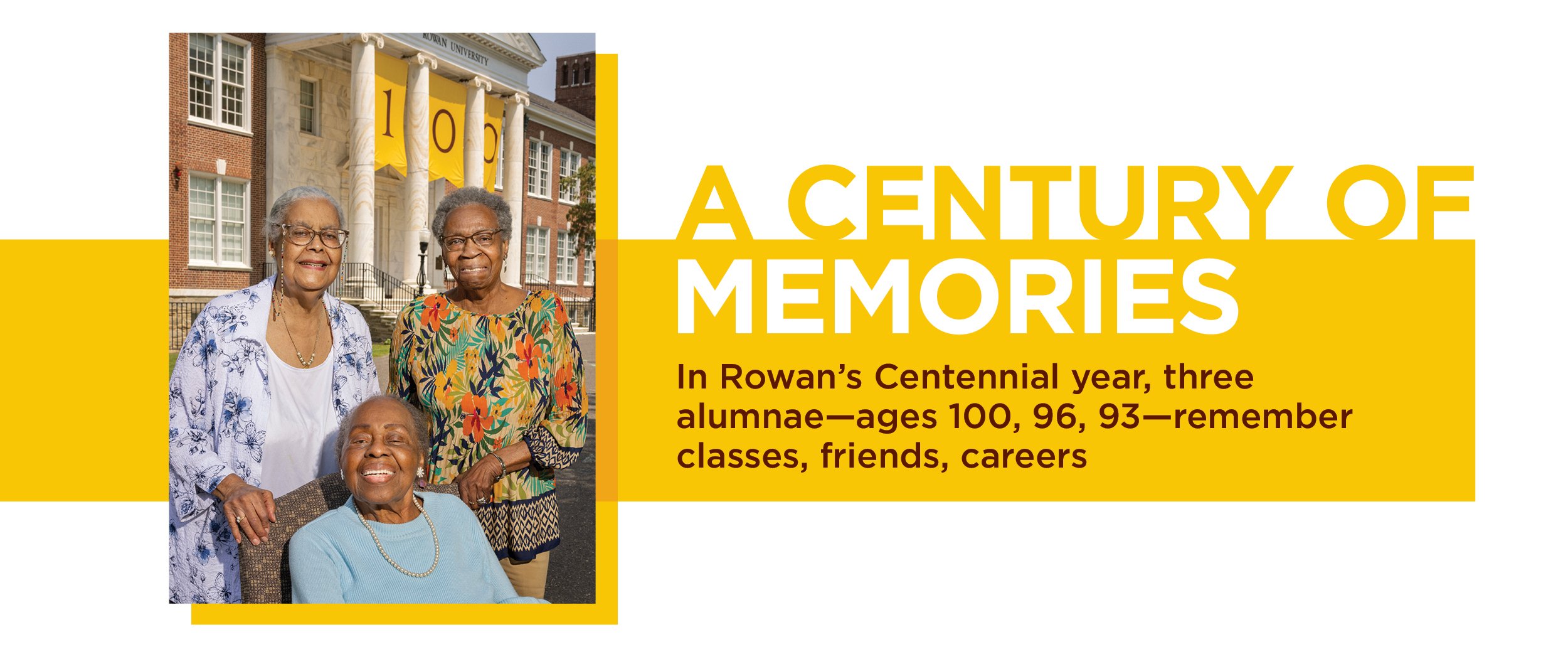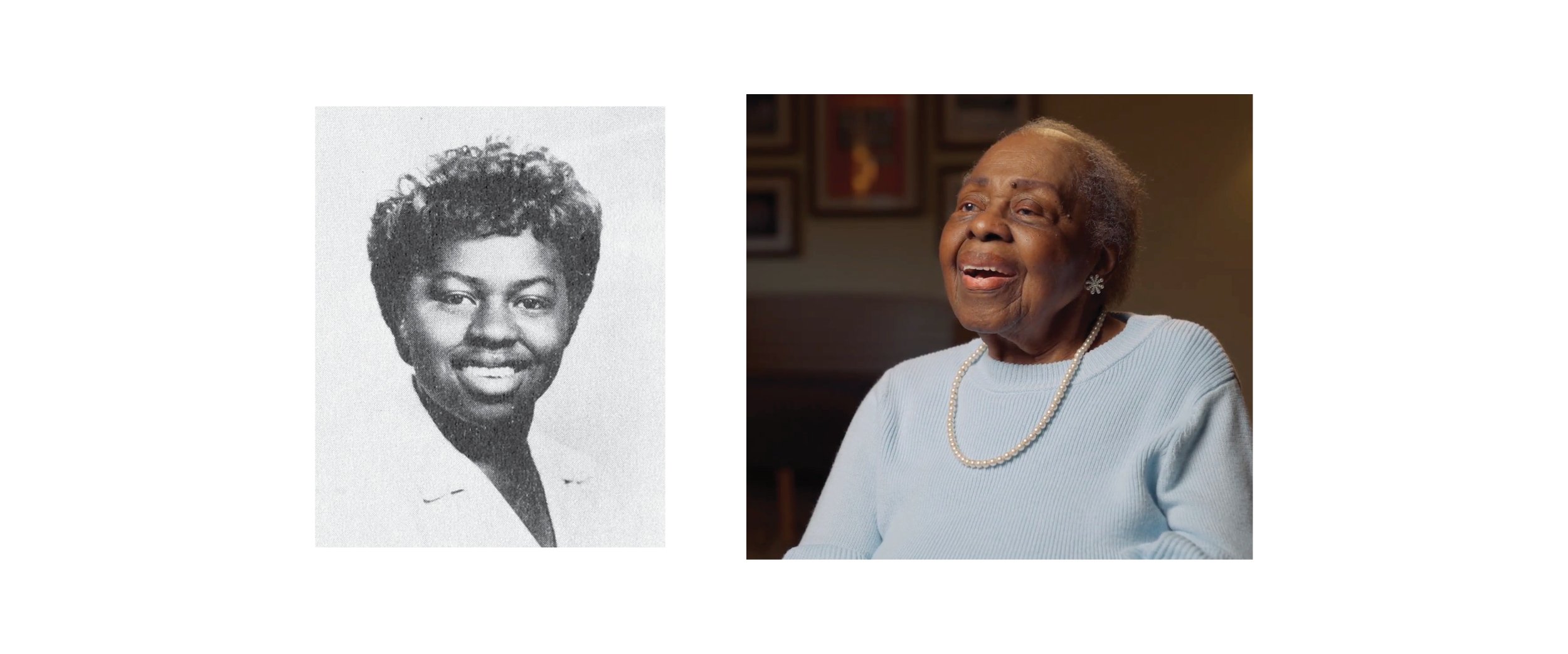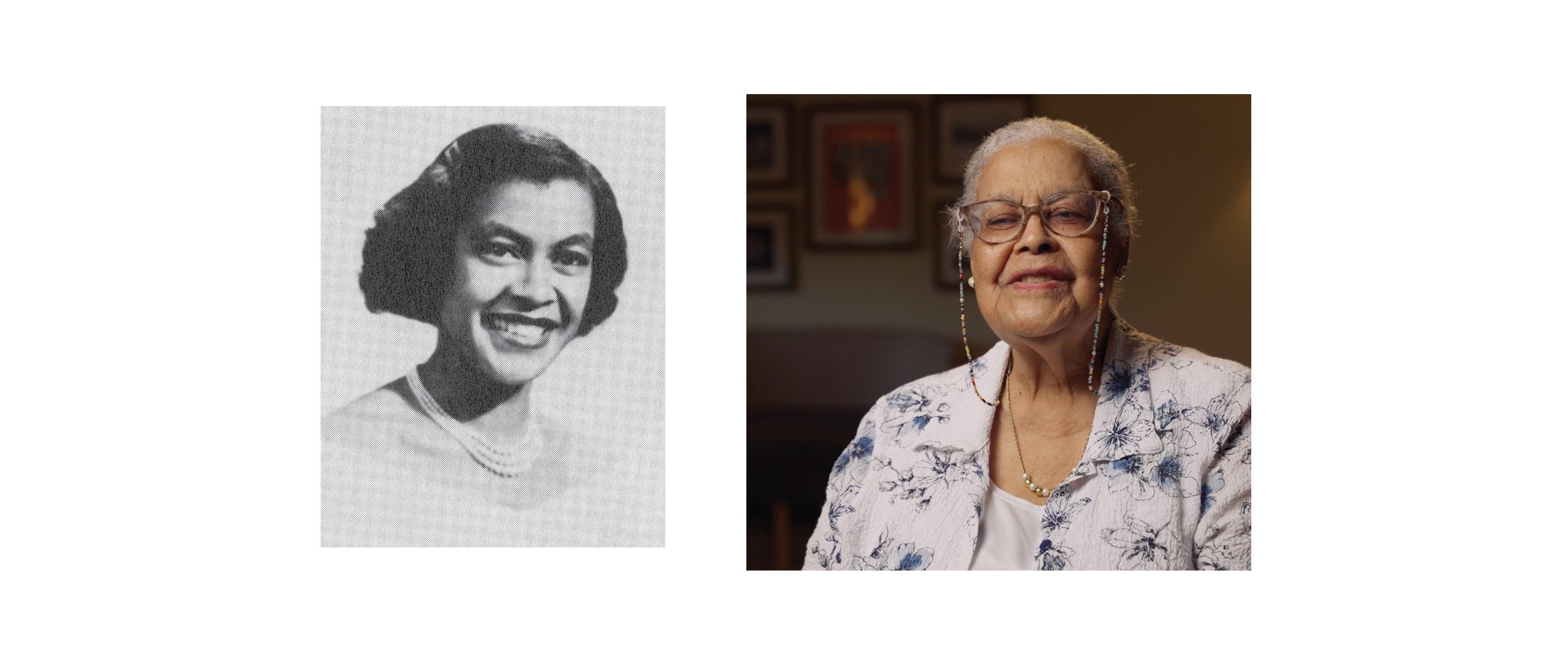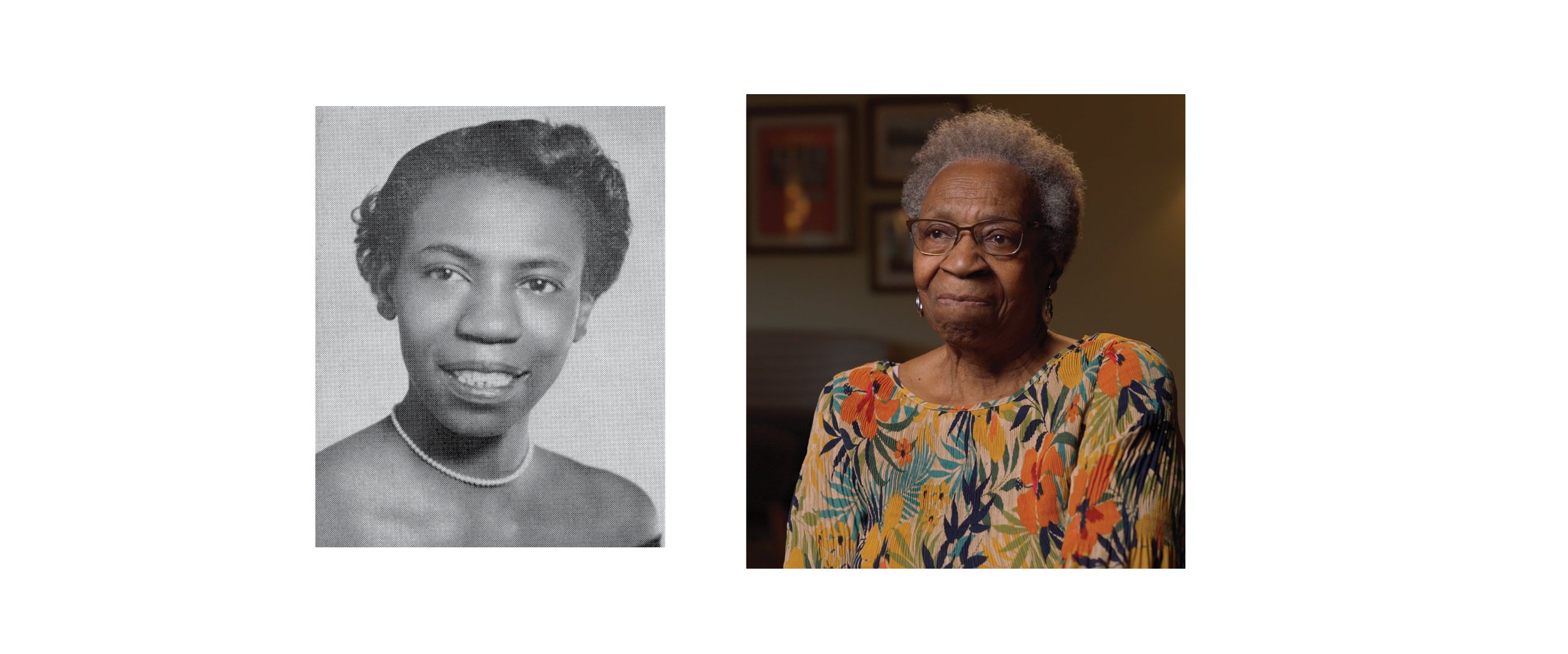
The memories—of classes and professors, friends and dances, activities and clubs—are etched in their minds.
So when Ann Williams Henry, 100, Florida Causey Dixon, 96, and Jean Eldridge Henderson, 93, returned to Glassboro this year after many years away, they easily remembered a time, some seven decades ago, when their alma mater was just a small state college to train South Jersey teachers…and they were students preparing for careers in teaching and service.
Then, the institution was commonly known as Glassboro State Teachers College. Today, it’s Rowan University, a top 100 national public research institution that boasts 22,000 students.
This academic year, Rowan is marking its Centennial. The three women, who became friends as adults, returned to Glassboro to meet University and College of Education leaders and reminisce about how their experiences on campus shaped their lives. The College of Education also is 100 this academic year.

That she’s the same age as the University is remarkable to Henry, who grew up in Egg Harbor Township. She attended the institution during World War II, graduating in 1945.
“I’m 100 years old and there are times when I feel every year of it,” chuckled Dixon, who grew up in Egg Harbor, one of nine children. “I was in college during the war years, from ’41 to ’45.”
Throughout her schooling, Henry lived with families in private homes near campus, including at Hollybush with President Edgar F. Bunce, his wife and children during her freshman year. Bunce was the institution’s second president. Rowan’s iconic academic building, the birthplace of the institution, was named in Bunce’s honor.
“I helped with the cooking. That was part of my job…to help with housework. I went to school every day and then went back and stayed at the Bunce’s house,” she recalled.
Because of the war, most male students were in the service. The female students, she said, developed close bonds.
“By Christmas, most of the few boys were gone in service. They had been drafted. So we didn’t have many boys. But we girls got alone fine. I have many good memories of Glassboro. I had lovely friends among the whites as well as the Blacks.
“We all got along very well. Even after graduation, we remained friends.”
Henry enjoyed a 40-year career as an elementary school teacher, beginning in a segregated, one-room schoolhouse in Mannington Township. There, she taught a class of 24 children in pre-kindergarten through sixth grade. When the district built a new school and classes were integrated, she taught there as well, dedicating her career to teaching her “little folks.”
“I liked teaching the younger children better. I loved the kids, being with the kids,” she said. “I haven’t wished for any other career. I couldn’t think of anything else I’d rather do than teaching.”

An only child who grew up in Woodstown, Henderson lived on campus for three years in Oak Hall. She juggled studies and activities, particularly orchestra, which was led by W. Clarke Pfleeger, namesake of the Pfleeger Concert Hall in Wilson Hall. Henderson played piano.
“Dr. Pfleeger was a great musician and a great teacher,” she said. “He always explained what he wanted very clearly and, also, how to express yourself in music…how the expression made it sound better. It was nice.”
Campus was friendly, she said, and the bonds between students were strong.
“I had a great time in Glassboro and I met some friends, which I still have today,” Henderson said. “I had a lot of fun with the girls, going to dances in the cafeteria before games…just doing silly things.
“You got to meet a lot of people from different places and they shared their experiences,” she continued. “I liked being on my own.”
Henderson devoted 37 years to teaching mostly kindergarten in the Salem school district. She integrated her love of music into her classroom, playing the piano and making up songs as her students transitioned between activities.
“Some of my former students I still see today on the street in Salem,” she said. “They were nice kids.
“To me, I was their mother and they were my children and every kid was mine. They were so inquisitive and I liked that about them. My job was to teach them and to help them learn and be a better student for first grade.”

Dixon believes she is a natural teacher. But her long career wasn’t spent in the classroom.
Upon graduation from Glassboro, she taught seventh grade and special education for a year in Pedricktown and Philadelphia. But, after taking time off to raise her family, she became a social worker, devoting 27 years to serving citizens with the Salem County Board of Social Services.
“Even before I went to college, I was always trying to teach somebody,” she said. “I always wanted people to learn. I was that type of kid. I really enjoyed teaching and I felt I was good at it. I only taught a year, then I raised my family and then I went into social work.
“With social work, you deal with the whole family. You’re dealing with children and adults. I encouraged folks to get training. That was my push as a social worker.”
Orphaned as a child and raised by her aunt in a home with 10 children, Dixon took a job as a domestic after high school. The mother of the family immediately recognized her skills and brought her to Glassboro to take college entrance exams.
“She insisted that I come and take the test. I had a very high mark, especially in math. So she kept pushing me,” Dixon recalled.
At Glassboro, Dixon found her stride, excelling in classes and having an active social life that included dances, parties and involvement in a local church.
“I was a studious person. I worked really hard and I loved studying. You pretty much had classes all day, but with your breaks, you would go into the commuters’ room and play pinochle. In college, you had to play pinochle.
“Glassboro was a small town then,” she added. “It was fun. To this day, I remember all of my classmates.”